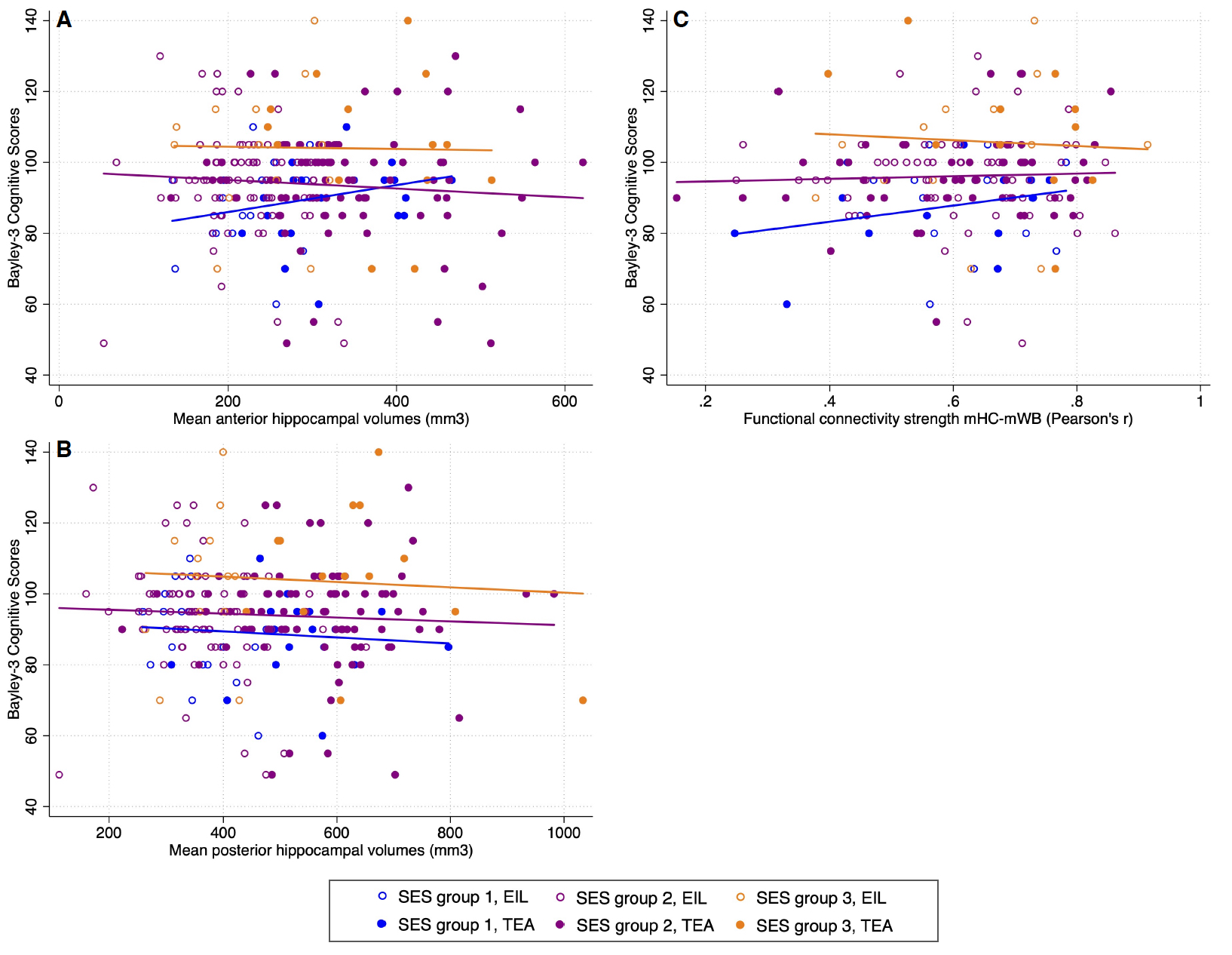Neonatal Neurology: Clinical Research
Neonatal Neurology 6: Clinical 6
129 - Hippocampal development and 18-month cognitive outcome in preterm neonates: the intersection of regional brain volumes, functional connectivity, and socio-economic status
Publication Number: 129.338

Julia Konrad, MD (she/her/hers)
Research Fellow
The Hospital for Sick Children
Munich, Bayern, Germany
Presenting Author(s)
Background: Socioeconomic status (SES) predicts neurodevelopmental outcomes in children born preterm. The hippocampi, playing a critical role in cognition, are particularly vulnerable to chronic stress and early-life adversity. Recent studies have found that lower SES is associated with smaller volumes in the stress-sensitive anterior hippocampi in older children and altered functional connectivity networks.
Objective:
To examine whether SES modifies associations between hippocampal structural and functional development with cognitive outcomes in very preterm neonates.
Design/Methods:
179 very preterm neonates (< 32 weeks GA) underwent MRI early-in-life (EIL; n=156, median 32.9 weeks post-menstrual age [PMA]) and at term-equivalent age (TEA; n=150, median 41.1 weeks PMA). Anterior and posterior hippocampal volumes and functional connectivity strength were obtained. SES was quantified as maternal level of education (level 1: high school or less; level 2: college or undergraduate; level 3: graduate school). Cognitive outcome at 18 months was assessed with Bayley Scales of Infant and Toddler Development, 3rd edition. Generalized estimating equations (GEE) were used to assess whether SES modifies associations between hippocampal volumes and functional connectivity with cognitive outcome using an interaction term. All models were adjusted for birth GA, PMA at scan and sex.
Results:
SES modified associations between anterior, but not posterior hippocampal volumes and cognitive outcome (interaction p=.005). Similarly, SES modified associations between hippocampus functional connectivity and cognitive outcome (interaction p=.05). Greater anterior hippocampal volumes and connectivity were associated with higher cognitive scores in the lowest SES group, but not in higher SES groups (Fig.1). SES did not directly predict hippocampal volumes from EIL to TEA.
Conclusion(s): We found that SES modified relationships between neonatal hippocampal development and cognitive outcome at 18 months; greater anterior hippocampal volumes and functional connectivity were associated with higher cognitive scores in the lowest SES group only. However, we did not observe a direct correlation between SES and neonatal hippocampal volumes, suggesting that the pathways linking hippocampal volumes and cognitive outcome are related to aspects of SES beyond the time frame of neonatal care. Identifying specific factors mediating this complex relationship may point towards opportunities to promote neurodevelopment in infants born very preterm more equitably. 
